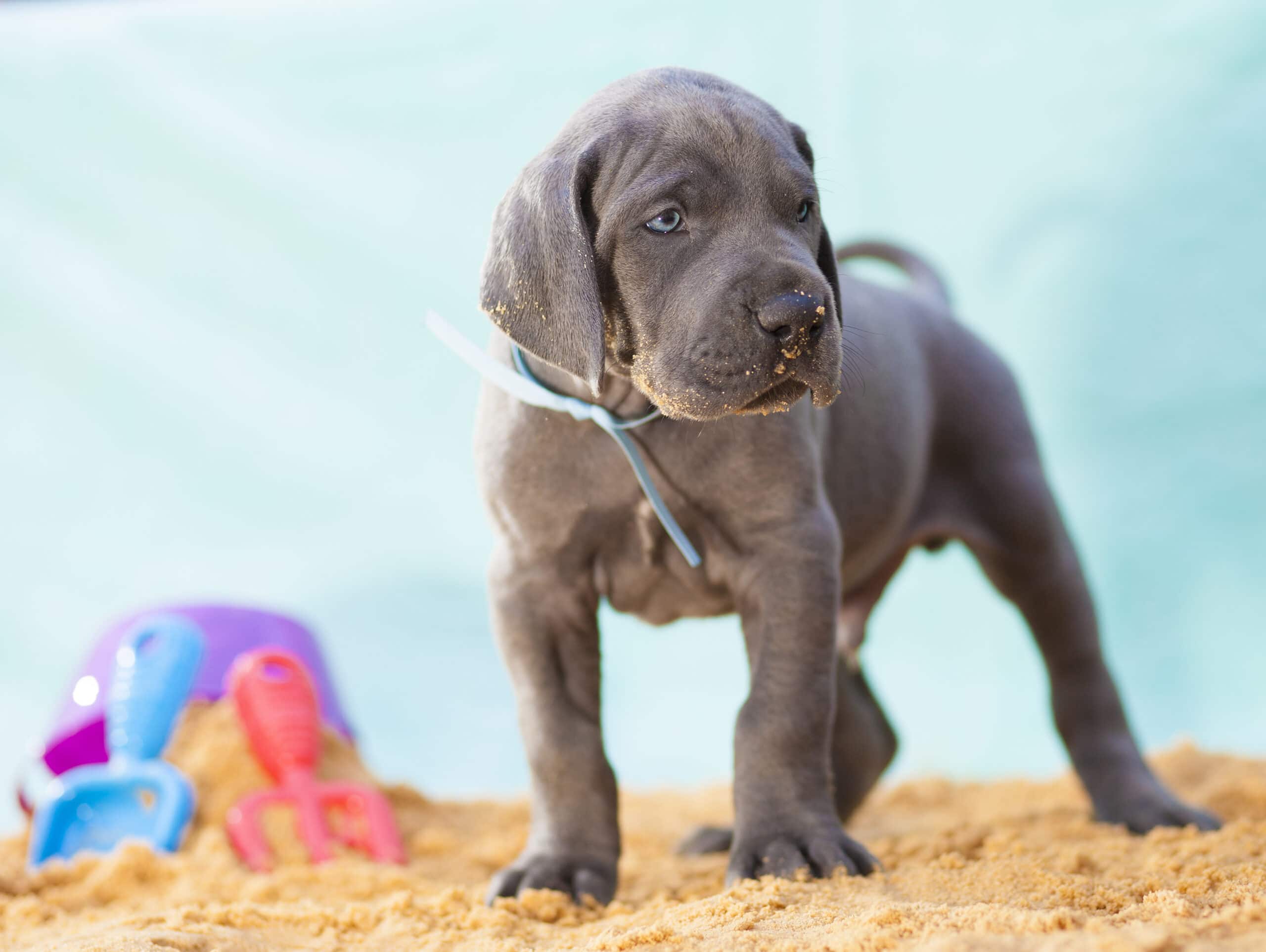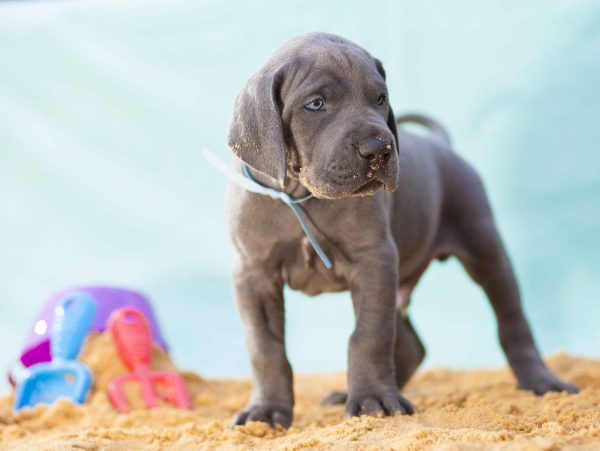Click to Skip Ahead
If you’re feeling fed up with winter, you might be dreaming of afternoons on the beach with your pup or playing fetch at the dog park. Everyone knows that any outdoor adventure should be accompanied by sunscreen to protect our sensitive skin and prevent skin cancer, but what about our four-legged pals? Do they also need sunscreen when spending time outdoors?
While sunscreen isn’t an essential item for every dog, there are some that are particularly sensitive to sun damage, and need sunscreen as much as we do. Read on to learn more.

Can Dogs Get Sunburned?
Yes, dogs can get sunburned when they spend too much time outside in the sun without sunscreen and adequate access to shade1. Harmful UV rays don’t need a lot of time to damage skin cells—often less than an hour when UV levels are high.
It’s also important to note that sunburn can happen any time of the year, though it is most often associated with summertime. You and your pup can both get burned anywhere and anytime sun exposure is high, including visiting or living in high altitude locations. Exposure to skin-damaging UV rays is higher in mountainous regions than on tropical beaches. Sounds strange, right? But it makes sense when you think about it. The sun’s UV radiation increases with elevation because there is less atmosphere to absorb the radiation.

Are Some Dogs More Likely to Get Sunburned?
All dogs can get sunburned, but those with light skin and thin or white fur are more at risk2. This includes breeds like Bull Terriers, Whippets, and Dalmatians.
Some breeds, such as the Xoloitzcuintli (aka Mexican Hairless), Chinese Crested, and the American Hairless Terrier, are particularly prone to sunburn due to the fact that they have little to no fur to add protection. But even pups with thick coats could get a burn, especially if they’re in the middle of a seasonal shed or suffering from a health condition that affects the density of their fur.
Additionally, some areas of the body are more prone to burning, particularly those parts without much hair or fur, and many dogs love to lie sprawled on their backs as they sunbathe, exposing their pink bellies to the sun.
What’s the Best Sunscreen for Dogs?
You need to find sunscreen specifically formulated for dogs. Those designed for humans often contain ingredients that may be toxic to dogs if ingested. Even those that claim to be “safe for dogs” could contain unsafe ingredients because the FDA doesn’t regulate these products. Always look at the ingredient list before buying to ensure they don’t contain zinc or titanium oxide.
Sunscreens for dogs are often found in sprays, making them easier to apply than sticky creams.
If you find yourself needing to apply sunscreen only to small areas of your pup’s body (e.g., nose or ears), sun balms made for dogs are great.
If you have a dog with a thin coat (or no coat), consider investing in a shirt that offers UV protection as an easier alternative to covering their entire body with sunscreen.

How to Apply Sunscreen
As with most products designed for our skin, it’s best to test out your dog’s sunscreen in a small area of your pet’s body before your first outing where you need the sunscreen. Doing a test run will allow you to gauge your dog’s reaction to the cream or spray and see if it causes a reaction. The last thing you want to do is apply sunscreen to your pet when you’re setting up for a day at the beach, only to find out your dog is allergic to it.
Take care when applying the cream or spraying the spray to the face area so as not to get any in the eyes. It will take the cream several minutes to “soak in,” so keep your eye on your pup to ensure they’re not licking at it.
What Are the Risks of Sun Exposure?
Animals can experience the negative effects of excess sun exposure just like humans. Burns can not only be very painful, but too much sun can cause more serious issues, such as certain types of skin cancer. The types of cancer associated with sun exposure in dogs include squamous cell carcinoma, malignant melanomas, hemangiomas, and hemangiosarcomas.
Sunburns can also exacerbate health conditions your pup already suffers from, such as dermatitis and autoimmune disorders.
Final Thoughts
Just as you wouldn’t leave the house for an outdoor adventure without sunscreen in the summer, nor should your pup. Dogs are just as prone to sunburn as we are, and using the right sunscreen can make all the difference. Don’t use products designed for adults on your dog, and only use sunscreen designed for dogs.
Featured Image Credit: Guy-J.-Sagi, Shut0terstock











